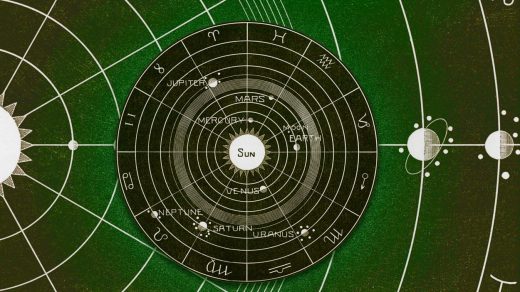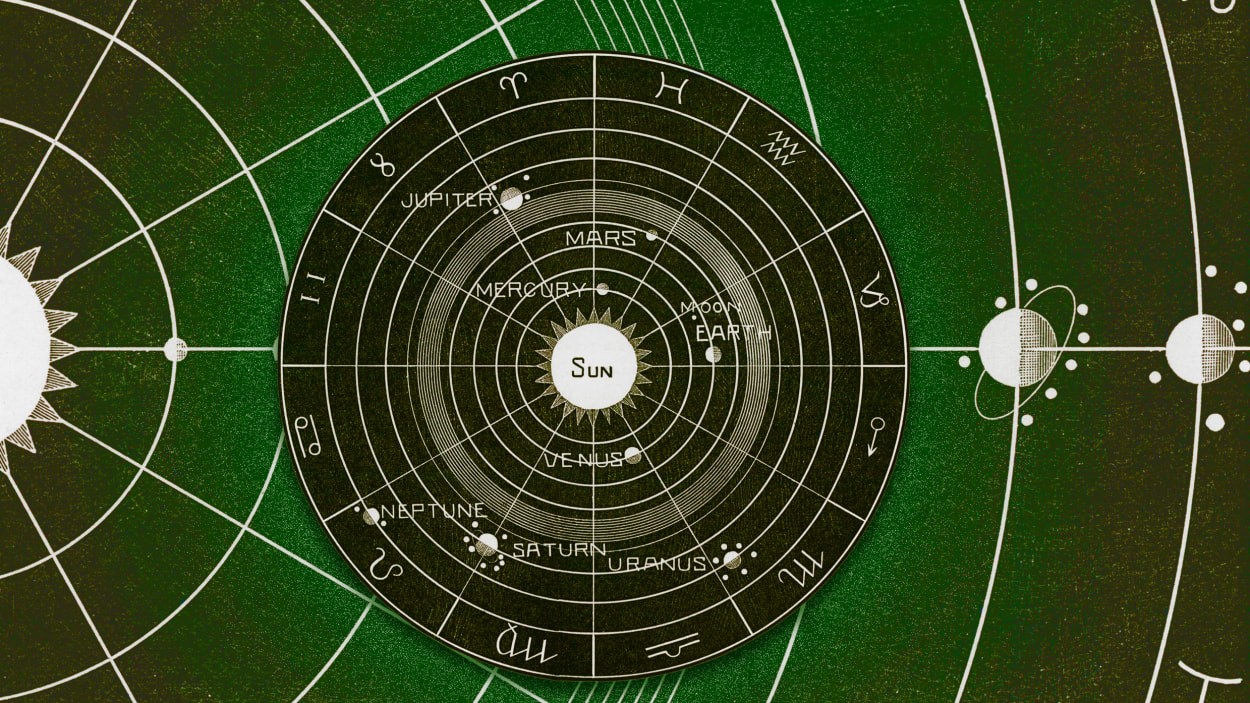‘It’s ChatGPT with a soul.’ Try this technology to hack your success
By Ophira Edut
I’m a University of Michigan-educated media professional, a consultant to top leaders and the owner of a seven-figure business. I have a healthy respect for science, above-average common sense, and I’m inclined toward the skeptical.
I’m also a professional astrologer.
If that strikes you as either ridiculous or wildly intriguing, I get it. The typical response l hear is either, “Oh my God, I’m obsessed with astrology—tell me everything about Scorpios!” or “I don’t really believe in that stuff.”
If you fall in the second camp, awesome. You see, there’s nothing to believe in here. Astrology is not a belief system or a substitute for religion.
Astrology is a technology.
It’s ChatGPT with a soul.
Call it AI for the Age of Aquarius—or Spiritual Technology (#SpiritTech) as I like to say. Like the love child of a chatbot, your longtime therapist and your favorite healer, spiritual technologies like astrology, tarot, human design, and other modalities can supply quick answers to anything from how to effectively communicate with a coworker to why that one person always gets under your skin—and what to do about it. A skilled practitioner can assess your dilemma so quickly, you’d swear they are reading your mind or mining your data. (We’re not, I promise.)
People use astrology for the same reason the world is rushing to adopt AI: Life is too damn hard to figure out alone.
For my private clients, who are often top Fortune 100 executives, elected officials, founders, and thought leaders, being able to confidently make fast decisions is a must. They need the equivalent of an AI assistant for the social-emotional minefields of business and life that can distract and distress them 24/7.
Many of these leaders, in addition to being business badasses, are doing the “second shift” at home, strategically managing the operations of family life, coordinating childcare and schedules, and the rare date night, without missing a beat at the office.
With all that on their shoulders, how could they not turn to astrology?
Many days, they need extra reassurance to break free from a paralyzing state of anxiety, self-doubt and fear. Spiritual technology fills the “empathy gap” that machine learning never will. When you’re privately agonizing over things like, “Why do I have imposter syndrome despite my many awards and advanced degrees?” a search engine just won’t cut it.
If you happen to be part of a marginalized group, self-advocacy is a risky proposition, one that only becomes more perilous the higher you climb. Underrepresented leaders can lose leverage faster than you can say “eclipse” if their tone becomes insistent, for example, or if they aren’t assertive enough.
Astrological counsel helps these people avert the subtle glass ceilings and microaggressions that widen into a wage gap or a one-way ticket off of the executive track.
One of my clients, the longtime HR director for a large accounting firm, learned this when she voiced her frustration to her (female) CEO. The firm’s retention rate was plummeting and the company was bleeding cash by onboarding so many new employees, only to lose them within a few months.
My client assumed that she could speak candidly to her boss, but she was wrong. Instead of being thanked, she was sent to a demeaning workshop on “emotional self-regulation in the workplace.” (Silver lining: The facilitator was so bad, it gave my client the idea to start her own freelance corporate training business in 2024, which I helped her craft according to her birth chart.)
Using astrology to hack racism and sexism (and any “ism”) in the workplace is similar to the late 19th-century wave of Suffragist cookbooks. To widely champion voting rights, women published and shared cookbooks interspersed with feminist quotes, poems, and text—a 19th Amendment call to arms hiding in plain sight, where men were least likely to look.
It’s nothing new, sadly. The “feminine” (i.e., anything that focuses on empathy, relationships, or beauty) has always been mocked as superficial—at least, when women do it. Astrology has ended up in the pink ghetto alongside manicures, designer yoga pants, and cursive i’s dotted with bubbly hearts.
To wit: Taylor Swift’s Eras tour, filled with sobbing teen girls and friendship bracelets, significantly boosted the 2023 economy and, along with Beyonce, Barbie, and other cultural icons, created a global heartstorm in a war-torn, divided world. Leo Kylie Jenner, whether a true paper billionaire or not, can sell out a lip kit drop in seconds. We love our weepy, vulnerable cultural icons like Drew Barrymore (Pisces) and girl-pop types like Reese Witherspoon (Aries) and Swift (Sagittarius).
But do we respect them? Grudgingly at best, and only when they show us their billions. Too often, the traditional business world regards these women as successful in spite of their stereotypical femininity or female customer bases, rather than because of these things.
Here’s what I’ve learned from my powerful clients: They share desire to bring all of themselves to their work and leadership. To exude the love that wants to pour out of their huge, exploding hearts and the intelligence brimming from their equally expansive minds. To do a RuPaul reveal of their spiritual, emotional, and mental intelligence, all at once. And to live in a world where that trifecta is a superpower—rather than a deficiency to treat with a bad corporate training or a mental health leave of absence.
Being human isn’t easy for anyone. Luckily, it has an operating manual, one that’s outlasted every “age” of humanity. Your astrological chart is your cosmic operating system. It can tell you everything from your natural communication style to what attracts you to how you deal with fear and challenges. And since we’re literally made of stars, it makes sense that we come with a built-in GPS from birth. At least, to me.
So, thank you for drafting my pitch deck, ChatGPT. Alexa, please keep turning on my lamp when I’m lazy. And love ya, Siri, but since you haven’t personally experienced workplace sexism or an agonizing divorce, I’m not gonna “hey” you on that one.
If you can point me to the most helpful human expert though, Siri, please do. Because if there’s one thing underrepresented leaders need more of on this planet, it’s support. Whether it’s programmed in Python, by the planets, or (preferably) both, if it lightens my load and helps me actually enjoy the life I’m working so hard to create, I’ll take it.
(12)



